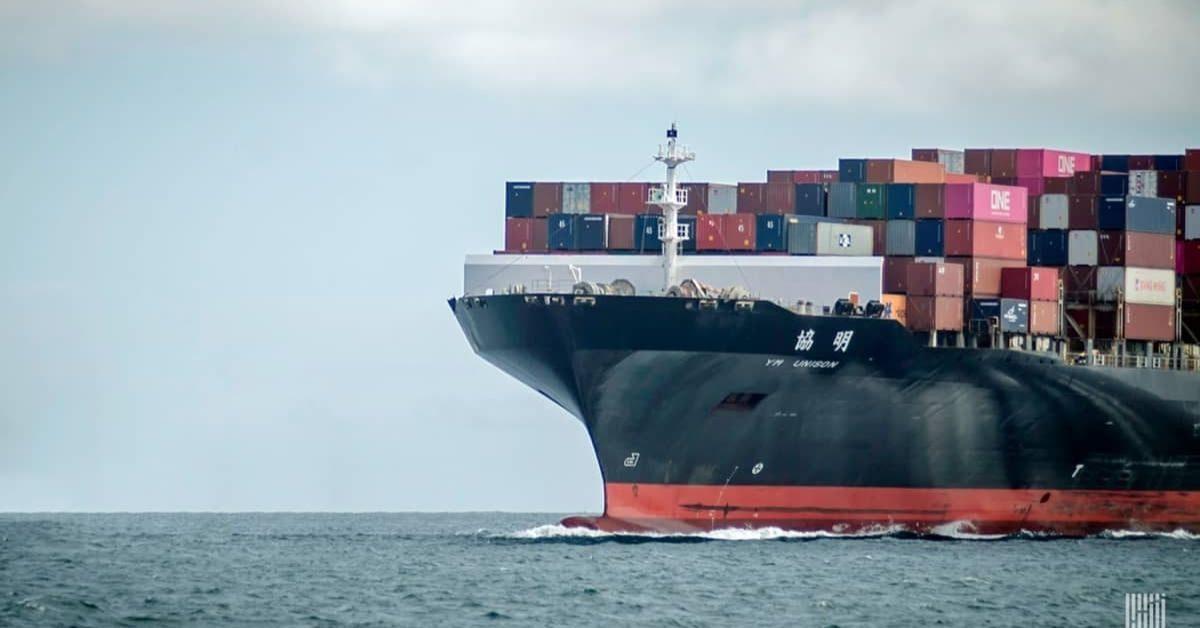On the westbound India-Europe trade, average contract rates from West India [Jawaharlal Nehru Port (JNPT)/Nhava Sheva or Mundra Port] to Felixstowe/London Gateway (UK) or Rotterdam (the Netherlands) have dropped to US$850 per 20-foot container and US$950 per 40-foot container, from US$950 and U$1,050, respectively, at the end of March.
For West India-Genoa (the West Mediterranean) shipments, contract rates have held steady month-on-month, at US$850/20-foot box and US$950/40-foot box.
However, eastbound cargo (imports into India) rates for these port pairings have seen further declines, month-on-month, with the exception of the Mediterranean trade. According to the analysis, average rates now stand at US$1,050/20-foot container and US$1,150/40-foot container for bookings from Felixstowe/Rotterdam to West India, versus US$1,250 and US$1,350, respectively, last month. However, rates for shipments from the West Mediterranean (Genoa) to West India have remained unchanged at US$900/20-foot box and US$1,006/40-foot box.
Average short-term contract rates for the India-US trades have shown some early signs of an uptrend, after major carriers began seeking general rate increases (GRI) – in the range of US$500 per container, from 29 March According to the analysis, rates for shipments from West India (Nhava Sheva/Mundra) to the US East Coast (New York) are hovering at US$1,550 per 20-foot box, up from US$1,502, and US$1,700 per 40-foot box, versus US$1,970, and at US$1,500/20-foot container, versus US$1,373, and US$1,741/40-foot box, steady with the March level, for container loads moving to the US West Coast (Los Angeles).
For the West India-US Gulf Coast (Houston) trades, average rates have also held firm month on month — at US$1,735 per 20-foot and US$2,735 per 40-foot container.
Major carriers, such as MSC, CMA CGM and Hapag-Lloyd, have announced a second of GRIs from 1 May – at a higher scale — and according to industry sources, the success of recovery will hinge much on this attempt as contract negotiations pace up.
However, on the US-India trades (return leg), short-term contract rates have continued to drop measurably, by between a 10 to 20% increase, on average, from the levels maintained by major operators last month.
According to the CN analysis, rates have now plunged to US$750/20-foot box, from US$908, and US$900/40-foot box, from US$1,125, for shipments from USEC (New York); to US$2,153/20-foot box, versus US$2,509, and US$2,753/40-foot box, versus US$2,509, for bookings from USWC (Los Angeles); and to US$1,559/20-foot and US$1,868/40-foot box from the US Gulf Coast, compared with US$1,870 and US$2,093, respectively, a month earlier, into West India (Nhava Sheva/Mundra).
Rates on intra-Asia trades out of India have also seen further declines month on month, with the exception of South China bookings, the CN analysis indicates. For West India-Yantian (South China), rates have remained steady at US$200/20-foot box and US$300/40-foot container, while for West India-Central China (Shanghai) trades, rates have crashed to US$20/20-foot box and US$50/40-foot, from US$50 and US$70, respectively, a month ago.
Average contract rates for bookings from West India (Nhava Sheva/JNPT or
Mundra) to Tianjin (North China) have dipped to US$80 per 20-foot container, from US$90, and US$160/40-foot box, from US$180, month on month.
For Indian cargo to Singapore, rates have plummeted to US$15/20-foot and US$30/40-foot container, from the March averages of US$25 and US$50, respectively.
For Indian shipments to Hong Kong, major carriers are accepting bookings at US$30/20-foot container, versus US$50, and US$60/40-foot container, versus US$70, according to the CN analysis.
April prices for West India-Jebel Ali/Dubai shipments have fallen to US$75/20-foot container and US$200/40-foot box, from US$100 and US$250, respectively, at the end of March.
Contract rate levels on intra-Asia return leg trades have slid between
10 and 25%, with booking rates from Shanghai and Tianjin to West India (Nhava Sheva/Mundra) taking the bigger hits, the CN analysis found.
Meanwhile, Indian merchandise exports, by value, for fiscal year 2022-23 hit an all-time high of US$447.47 billion, up 6% year-over-year, according to government data.
“The milestone achievement in goods exports has been mainly on account of phenomenal growth in exports of electronic goods, petroleum products, coupled with growth in agro and processed food products, marine products, leather goods, apparel, drugs and pharmaceuticals, and organic and inorganic chemicals,” said A Sakthivel, president of the Federation of Indian Export Organisations (FIEO), in a statement.
Sakthivel also said, “Exports have now become a national priority, which has helped in providing further momentum to the sector.”
He went on to explain, “However, the need of the hour is to provide marketing support for further promoting “brand India” products and services globally, GST [goods and services tax] exemption on freight charges on exports along with a 3-6 months transition period may be provided, whenever a major change is notified in the foreign trade policy, so that existing contracts can be executed factoring the prevailing benefits.”







